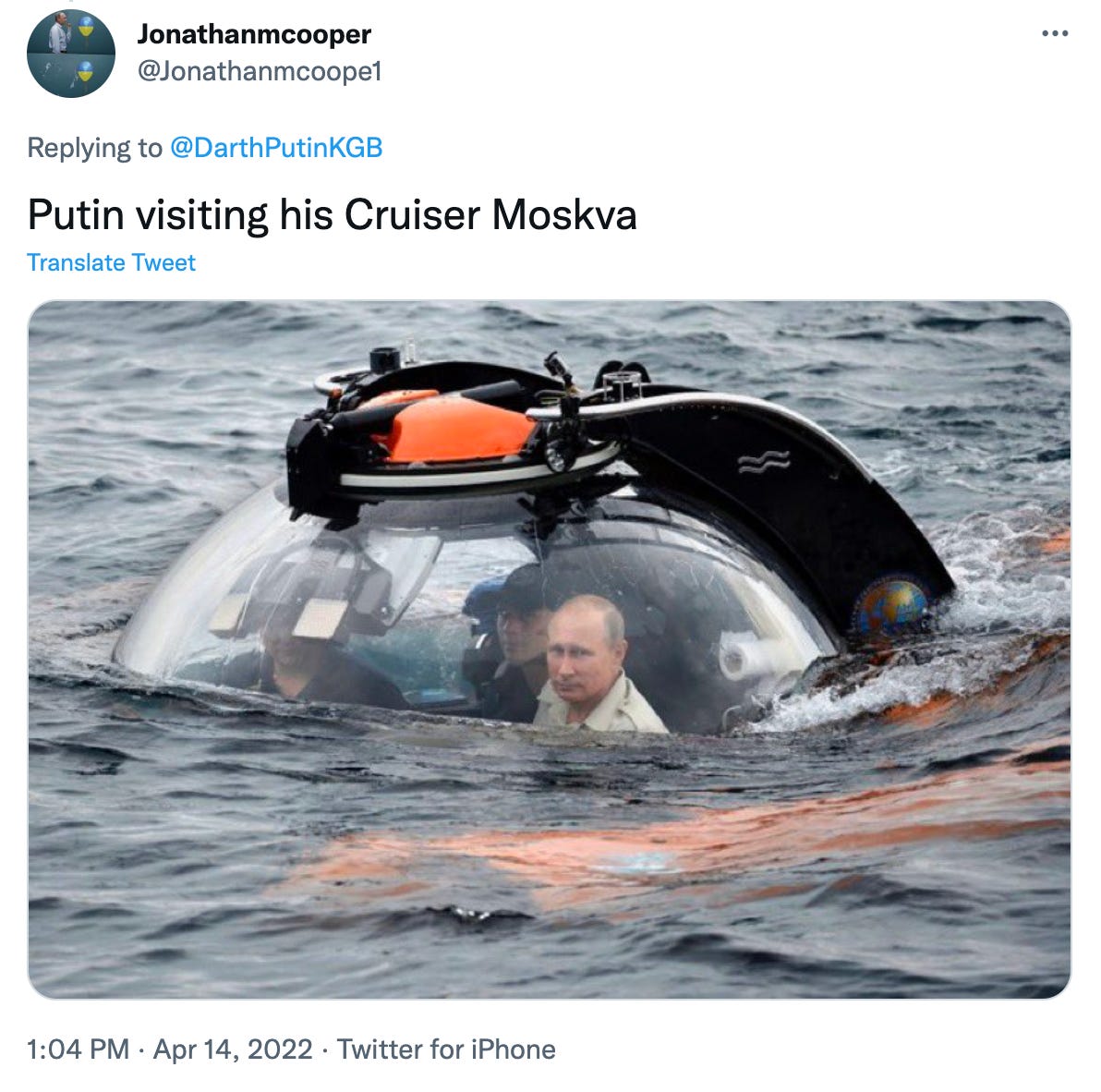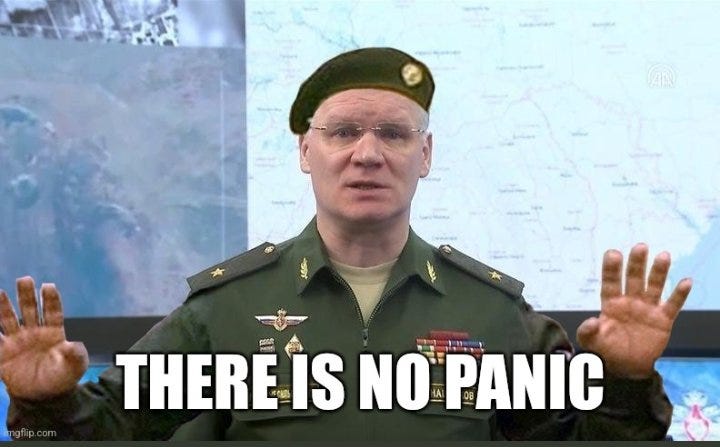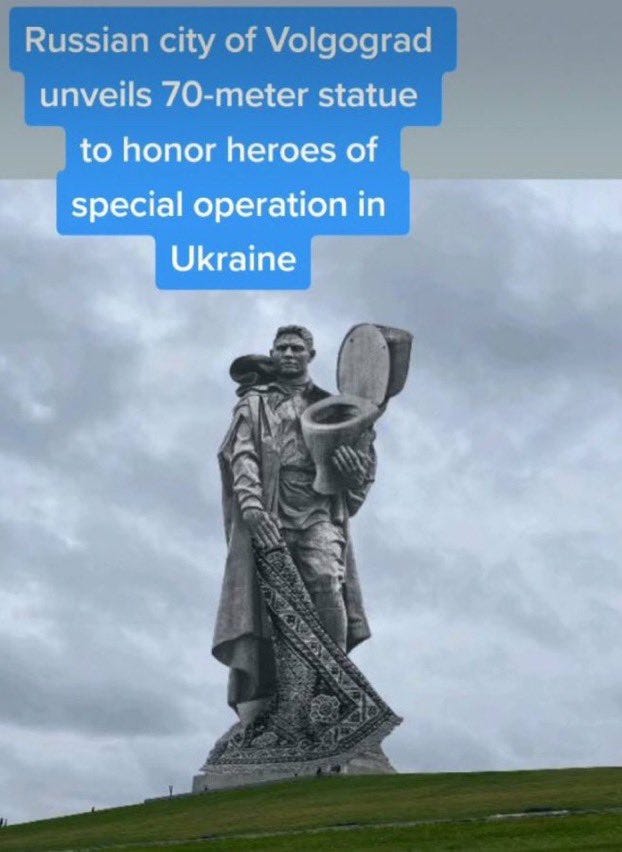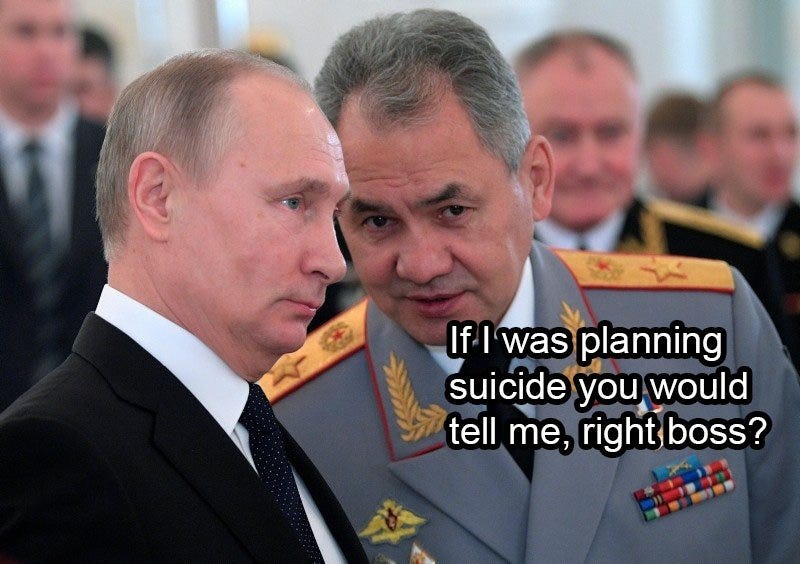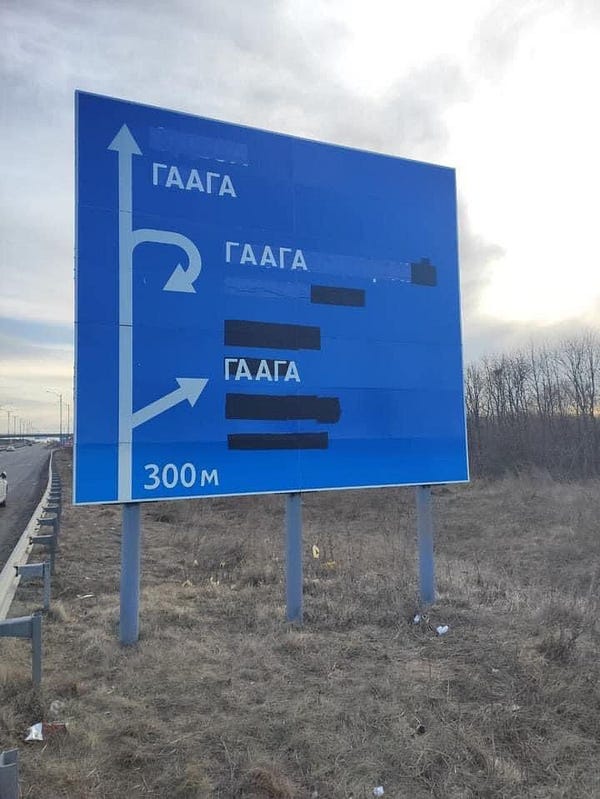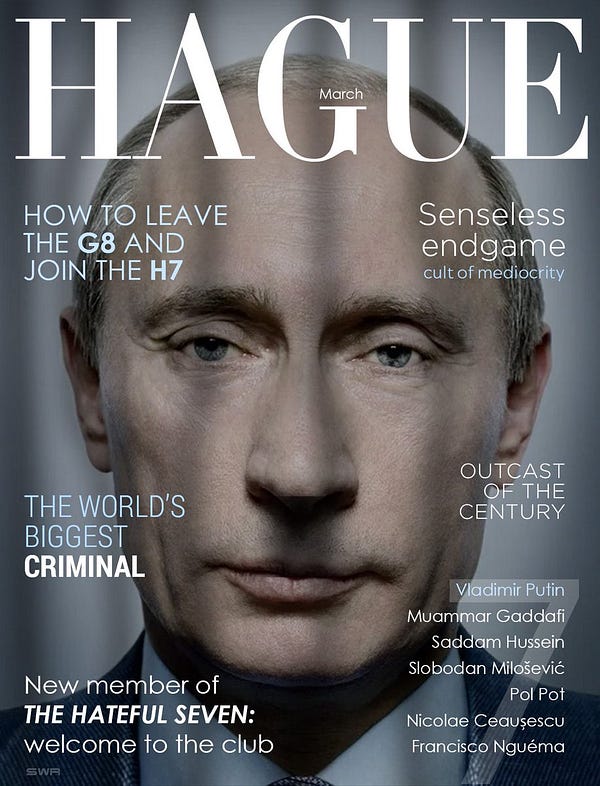Mar 20: Olga Tokariuk, Humour vs Disinfo: How Ukraine is resisting the Information War
A brief post about Olga Tokariuk's presentation at the Reuters Institute on March 16, 2023 and my introductory comments
Olga Tokariuk, Humour vs Disinfo: How Ukraine is resisting the Information War


"Humour is a universal language understandable for people across the world. It makes it possible to expose the absurdity of Russian disinformation narratives about Ukraine.”- Reuters Institute
From the early days of the second Russian invasion, Ukrainian communicators have been masterful in getting out their message to the global audience, starting with president Zelensky himself on February 25.
Who can forget the video of president Zelensky with his closest government officials on the street, in the middle of the night, telling us that he and the government were in Kyiv, and staying put. In forty-six seconds, Zelensky managed to counter the Russian disinformation narrative that the cowardly president and his government had run away. What better way to set the record straight and contrast the image of Zelensky’s counterpart, Putin, secreted in his offices far away from the public in Ufa or who knows where. It was the moment that set the tone: we are here and we are brave.
We been moved to tears by videos of soldiers returning home, greeted joyfully by their partners, children, family and friends, against the backdrop of a simple message: “This is who we’re fighting for”. Video footage from Bucha, Irpin and Kramatorsk enraged us, and here the tears were for the brutality and tragedy unleashed on the Ukrainian people by Russia. Amongst the tears of joy and profound sadness, we also laughed, and Olga Tokariuk talked about humour as a communicative tool at the latest Reuters Institute event.
Olga presented her preliminary research for a paper which looked at the way humour was used as a tool to counter disinformation regarding Russia’s war of aggression in Ukraine, a strategic communications tool for state and non-state actors, and how it was used to deliver Ukraine’s message to larger and diverse audiences.
In her presentation she discussed examples of humour found on various social media platforms and legacy media outlets: for example, NAFO posts, posts regarding Serpent Island, and the Ukrainian woman who put sunflowers in the pocket of a Russian soldier, among others.
Her research also included interviews with several experts in the field of humour-comedians, stratcom field operators, and academics in diplomacy studies- on the important role humour plays in communication, and what outcomes it seeks to achieve when applied.
These experts told Olga that humour is a tool which allows the speaker to reach a wider audience. Most people tend to stay in their information bubbles, so humour is useful in attracting and getting readers and listeners curious about an issue they’ve never considered in the past. This was extremely helpful for Ukraine in attracting supporters to its cause.
Stratcom uses a wide variety of tools to get their messages to audiences. Humour is just one, and it needs to be applied in appropriate context. Humour was applied successfully in Ukrainian communications, and Olga’s research showed that it was a great tool that:
attracked new audiences that had little or no knowledge of Ukraine;
made content understandable and relatable to people across the world;
exploited cultural codes successfully to attract Western audiences.
“Humour is a universal language understandable for people across the world, “ Olga continues, and “[i]t makes it possible to expose the absurdity of Russian disinformation narratives about Ukraine”. Ridiculing Russian disinformation has been the key to success for the Darth Putin account and his team since 2014. They’ve targeted Russian state actors like Kremlin spokeswoman, Maria Zakharova, and former Russian Prime Minister, Dmitry Medvedev. They know that, “ridiculing threats helps to dispel fear and incentivises action,” as Olga said.

In particular moments, for Ukrainians and Ukraine’s allies alike, humour was also “a tool to combat war fatigue and to keep Ukraine on the agenda”. Ukrainians are in the grips of everyday survival, so “using humour is an excellent coping strategy in the situation of evolving tragedy and a way to overcome war trauma”.
In Olga’s paper in progress, she’ll be expanding on her findings and key concepts as introduced at the Reuters Institute event. In the meantime, here are some examples of master trolling that kept us united in laughter.









